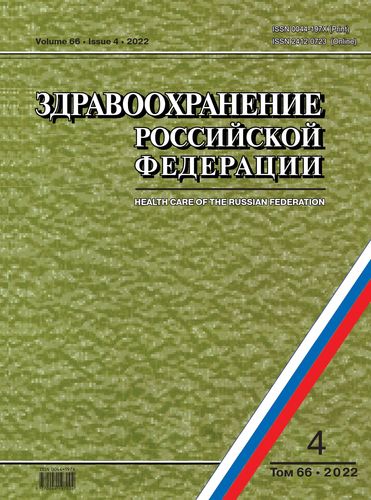Lend-Lease: delivery of medical products from the United States of America to the USSR during the Great Patriotic War
- Authors: Serebryany R.S.1, Kamelskikh D.V.1,2
-
Affiliations:
- N.A. Semashko National Research Institute of Public Health
- National Research Center for Hematology
- Issue: Vol 66, No 4 (2022)
- Pages: 342-346
- Section: HISTORY OF HEALTH CARE AND MEDICINE
- Submitted: 25.10.2024
- URL: https://cardiosomatics.orscience.ru/0044-197X/article/view/638022
- DOI: https://doi.org/10.47470/0044-197X-2022-66-4-342-346
- ID: 638022
Cite item
Full Text
Abstract
This article discusses the emergence of the idea of Lend-Lease, as a method with the implementation of which, in conditions of force majeure, there was an opportunity to optimally solve important pressing problems. A fragment is given — the quintessence of the correspondence of the British Prime Minister Sir Winston Churchill, calling on the President of the United States of America Franklin Roosevelt and insisting on the need to introduce Lend-Lease. On the basis of archival documents and sources of literature, the role and share of medical products received during the Great Patriotic War in the USSR under Lend-Lease was established. The great importance of lend-lease is confirmed by a letter from F. Roosevelt dated November 4, 1941, addressed to Joseph Vissarionovich Stalin. The author discloses not the decisive, but significant, assistance provided in the provision of medicines, medical and sanitary products to the Soviet Union, especially over the first period of the war in 1941–1942, when some of the medical enterprises remained in the territories occupied by the Nazis. The largest number of deliveries was shown to be made by the United States of America, in comparison with the UK and Canada. The ways and logistics of incoming supplies are investigated. Products were proven to be received not free of charge, but under certain conditions. The USSR had to pay for the goods received until 2030. The Russian Federation, the legal successor of the USSR, managed to repay the debt in 2006. The role of public organizations that came to the aid of the Soviet people earlier than the governments of Western countries fighting Germany was emphasized. Behind the decisions taken on this issue, the policy of the Anglo-American allies in relation to the USSR, to the state, which must be helped in the fight against the common enemy, but in moderation, without strengthening its potential, is seen.
Contribution of the authors:
Serebryany R.S. — research concept and design, editing, approval of the final version of the article, responsibility for the integrity of all parts of the article.
Kamelskikh D.V. — idea of research, collection and processing of material, writing the text, compilation of the list of literature.
All co-authors approved the final version of the article and take responsibility for the integrity of all its parts.
Acknowledgment. The study had no sponsorship.
Conflict of interest. The authors declare no conflict of interest.
Received: July 17, 2021
Accepted: August 29, 2021
Published: August 30, 2022
Keywords
About the authors
Roman S. Serebryany
N.A. Semashko National Research Institute of Public Health
Author for correspondence.
Email: niiimramn@mail.ru
ORCID iD: 0000-0002-2328-2931
MD, Ph.D. DSci., Leading Researcher of the N.А. Semashko National Research Institute of Public Health, Moscow, 105064, Russian Federation.
e-mail: niiimramn@mail.ru
Russian FederationDenis V. Kamelskikh
N.A. Semashko National Research Institute of Public Health; National Research Center for Hematology
Email: noemail@neicon.ru
ORCID iD: 0000-0002-1118-6969
Russian Federation
References
- Nalimova N.V., Tobolkina V.A., Bredneva N.D., Firsenko N.P. Medical supply in days of the Great Patriotic War, the contribution to medical property providing of Siberian chemical and pharmaceutical factories. Universitetskaya meditsina Urala. 2020; 6(2): 86–8. (in Russian)
- Stavskiy E.A., Zhdanov A.P., Dogadov V.V., Tsaregradskaya E.A., Shnyakin A.A. Medical supply in days of the Great Patriotic War, the contribution to medical property providing of Siberian chemical and pharmaceutical factories. Meditsina i obrazovanie v Sibiri. 2014; (5): 31. (in Russian)
- Churchill W.S. The Second World War: Their Finest Hour. Boston: Houghton Mifflin Company; 1949.
- Sherwood R.E. Roosevelt and Hopkins: An Intimate History. New York; 1948.
- Paperno A.Kh. The Third Period of the Glory of Petropavlovsk-Kamchatsky [Tretiy period slavy Petropavlovska-Kamchatskogo]. Petropavlovsk-Kamchatskiy: Novaya kniga; 2007. (in Russian)
- Kynin G.P., Sevast’yanov P.P., Trukhanovskiy V.G. Correspondence with F. Roosevelt and G. Truman (August 1941 — December 1945). In: Correspondence of the Chairman of the Council of Ministers of the USSR with the Presidents of the United States and the Prime Ministers of Great Britain during the Great Patriotic War of 1941–1945 [Perepiska Predsedatelya Soveta ministrov SSSR s Prezidentami SShA i Prem’er-ministrami Velikobritanii vo vremya Velikoy Otechestvennoy voyny 1941–1945 gg]. Moscow: Politicheskaya literatura; 1958. (in Russian)
- The Great Anti-Hitler Front. Izvestiya. 1941; (234). (in Russian)
- Jones R.H. The Roads to Russia: United State Lend-Lease to the Soviet Union. Oklahoma; 1969.
- Signing of the Agreement between the Soviet Union and the United States of America on the principles applicable to mutual assistance in the war against aggression. Izvestiya. 1942; 137(7823): 1–2. (in Russian)
- Malkov P.V., ed. The Great Patriotic War. Anniversary Statistical Collection [Velikaya Otechestvennaya voyna. Yubileynyy statisticheskiy sbornik]. Mozhaysk: Velkam Print; 2020. (in Russian)
- Avery D. Wartime medical cooperation across the Pacific: Wilder Penfield and the Anglo-American medical missions to the Soviet Union and China, 1943-1944. Pacific Science. 2000; 54(3): 289–98.
- Canada under Fixed Exchange Rates and Exchange Controls (1939–50). In: Powell J. A History of the Canadian Dollar. Canada; 2005.
Supplementary files










